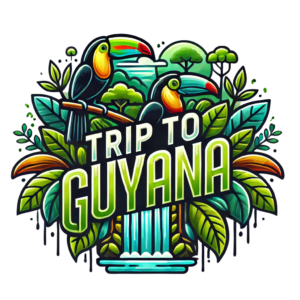Guyana, located on the northeastern coast of South America, gained independence from British colonial rule on May 26, 1966. The journey to independence was marked by political struggles, the rise of nationalist movements, and negotiations with the British government. This article explores the key events and figures that led to Guyana’s independence, highlighting the significance of this historic achievement in the country’s history.
Historical Background
Colonial Rule in British Guiana
Guyana, formerly known as British Guiana, was a British colony from 1814 until it gained independence in 1966. The colony’s economy was primarily based on sugar plantations, which relied heavily on enslaved African labor until slavery was abolished in 1834. After emancipation, indentured laborers from India, China, and Portugal were brought to Guyana to work on the plantations, creating a diverse population that would later shape the country’s political landscape.
The Rise of Nationalism
The early 20th century saw the emergence of nationalist movements in British Guiana, driven by the demand for better working conditions, political representation, and ultimately, independence. Key figures in the nationalist movement included Cheddi Jagan and Forbes Burnham, who would later become prominent leaders in Guyana’s political history.
In the 1940s, political activism intensified with the formation of the Political Affairs Committee (PAC) by Cheddi Jagan, Janet Jagan, and Ashton Chase. The PAC evolved into the People’s Progressive Party (PPP) in 1950, with Cheddi Jagan as its leader. The PPP advocated for independence, social justice, and economic reform. The party’s platform resonated with many Guyanese, particularly the working class and rural communities.
Steps Toward Independence
The 1953 Constitution and Suspension
In 1953, British Guiana held its first general elections under a new constitution that provided for universal adult suffrage. The PPP, led by Cheddi Jagan, won a landslide victory, securing 18 out of 24 seats in the Legislative Assembly. However, the British government, concerned about the PPP’s socialist policies and potential alignment with the Soviet Union during the Cold War, suspended the constitution just 133 days after the elections and removed the PPP government from power. British troops were sent to the colony to maintain control, and a period of direct British rule was reimposed.
The Struggle for Self-Government
Despite the setback in 1953, the struggle for self-government continued. Throughout the 1950s and early 1960s, political tensions between the PPP, which was largely supported by the Indo-Guyanese population, and the People’s National Congress (PNC), led by Forbes Burnham and supported mainly by Afro-Guyanese, escalated. These ethnic divisions complicated the path to independence, with both parties vying for power.
In 1961, British Guiana was granted limited self-government, and Cheddi Jagan became the premier after the PPP won the general elections. However, violence and unrest, fueled by political and ethnic tensions, plagued the colony during this period. The British government, along with the United States, became increasingly concerned about Jagan’s leftist policies and sought to prevent him from leading an independent Guyana.
The 1964 Elections and Path to Independence
In 1964, British Guiana held its final general elections before independence. The elections were conducted under a system of proportional representation, which was introduced to reduce the likelihood of any single party dominating the government. The PNC, led by Forbes Burnham, formed a coalition government with the United Force (UF), a smaller conservative party. This coalition secured a majority in the Legislative Assembly, and Burnham became the new premier.
With Burnham in power, the British government accelerated the process of granting independence to British Guiana. Negotiations between Burnham, the British government, and the opposition resulted in an agreement to grant independence. The date for independence was set for May 26, 1966.
Guyana’s Independence on May 26, 1966
On May 26, 1966, British Guiana officially became the independent nation of Guyana. The Union Jack was lowered, and the Golden Arrowhead, Guyana’s national flag, was raised for the first time. The country’s new constitution came into effect, establishing Guyana as a sovereign state within the Commonwealth of Nations, with the British monarch as the ceremonial head of state represented by a governor-general. Forbes Burnham became Guyana’s first prime minister, while Sir David Rose was appointed as the first governor-general.
Independence Day was celebrated with grand ceremonies, parades, and cultural events across the country. The achievement of independence was a significant milestone for Guyana, marking the end of more than 350 years of colonial rule and the beginning of a new chapter in the nation’s history.
Conclusion
Guyana’s journey to independence was shaped by decades of political struggle, nationalist movements, and negotiations. The efforts of key leaders like Cheddi Jagan and Forbes Burnham, along with the resilience of the Guyanese people, culminated in the historic achievement of independence on May 26, 1966. This event marked the birth of a new nation and set the stage for Guyana’s development as a sovereign state.
FAQs
Who led the independence movement in Guyana?
The independence movement in Guyana was led by key figures such as Cheddi Jagan and Forbes Burnham, who played significant roles in the country’s political landscape during the struggle for independence.
When did Guyana gain independence?
Guyana gained independence on May 26, 1966, becoming a sovereign state and ending over 350 years of colonial rule.
What were the main challenges faced by Guyana in the lead-up to independence?
Guyana faced several challenges in the lead-up to independence, including ethnic tensions between Indo-Guyanese and Afro-Guyanese populations, political violence, and concerns from the British government about socialist influences.
What role did the 1953 elections play in Guyana’s path to independence?
The 1953 elections were significant because they marked the first time British Guiana had universal adult suffrage. However, the British government suspended the constitution and removed the PPP government from power, fearing its socialist policies.
How is Independence Day celebrated in Guyana?
Independence Day in Guyana is celebrated with parades, cultural performances, flag-raising ceremonies, and other events that honor the country’s history and achievements since gaining independence.









